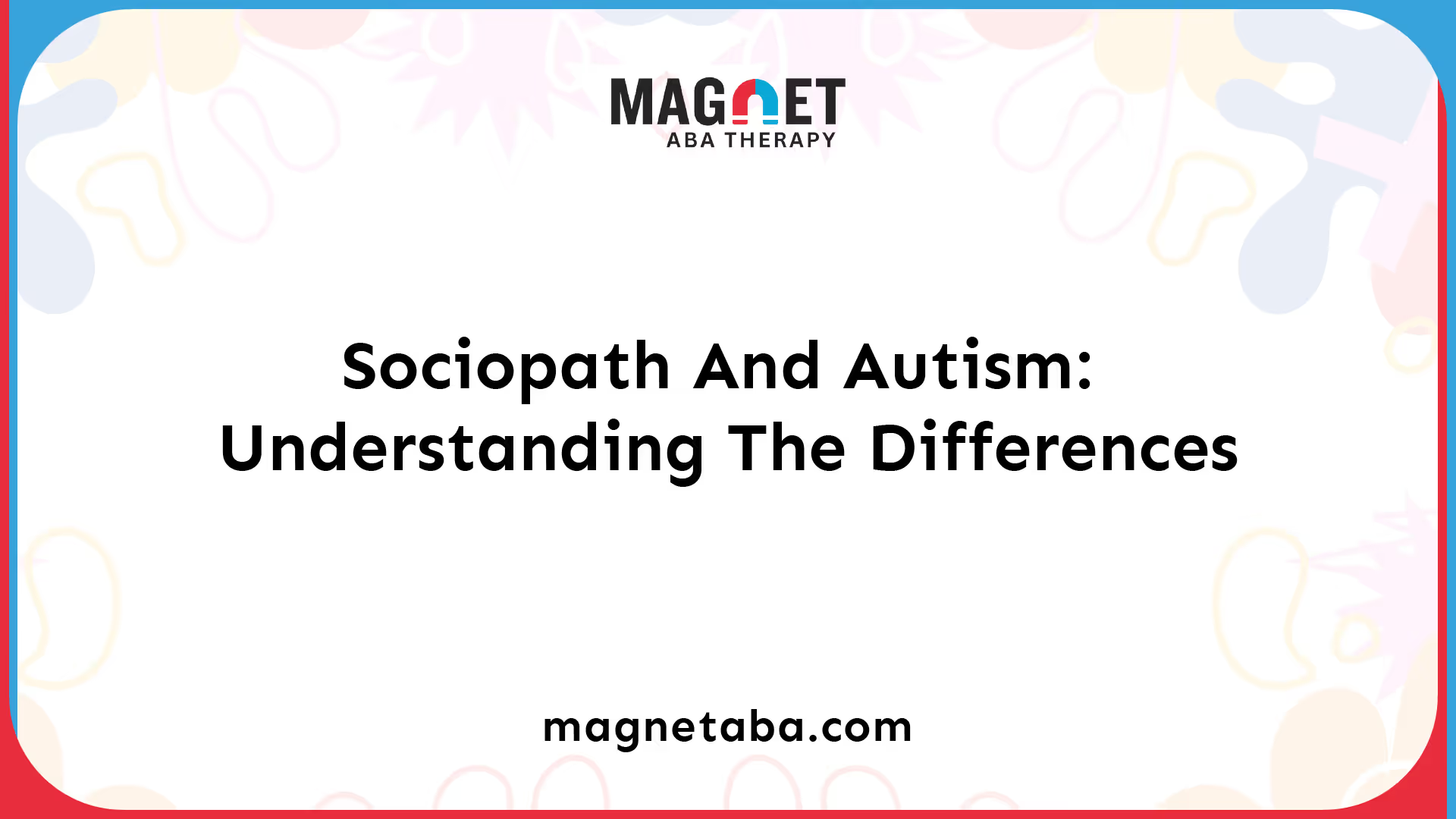Understanding Autism Spectrum Disorder (ASD)
Autism Spectrum Disorder (ASD) is a neurodevelopmental disorder that affects individuals in various ways. It is important to have a clear understanding of the characteristics and challenges associated with ASD to better support individuals with this condition.

Social Communication Challenges
One of the key features of autism spectrum disorder is social communication challenges. Individuals with ASD may exhibit difficulties in social interactions, such as a lack of appropriate eye contact and difficulties initiating or responding to joint attention [1]. They may struggle with understanding and interpreting nonverbal cues, making it challenging for them to navigate social situations.
Communication difficulties are also common among individuals with ASD. While some individuals may be nonverbal and require alternative communication methods, others may have specific difficulties in receptive and expressive language. It is important to recognize that communication challenges can vary widely among individuals with ASD, and each person may require different levels of support.
Behavioral Patterns and Interests
In addition to social communication challenges, individuals with autism spectrum disorder often exhibit behavioral patterns and interests that are unique to them. Repetitive behaviors and restricted interests are common in individuals with ASD. These behaviors may manifest as repetitive body movements (e.g., hand flapping, rocking), insistence on sameness in routines or rituals, and intense focus on specific topics or objects.
It is important to note that these behavioral patterns and interests can vary greatly among individuals with ASD. Some individuals may have highly specific and intense interests in certain subjects, while others may engage in repetitive behaviors as a way to self-regulate or seek sensory input. Understanding and respecting these patterns and interests can help create a supportive environment for individuals with ASD.
By understanding the social communication challenges and behavioral patterns associated with autism spectrum disorder, we can better support and accommodate individuals with ASD. It is important to approach each person with empathy, recognizing their unique strengths and challenges. Providing appropriate support and creating inclusive environments can make a significant difference in the lives of individuals with ASD and their families.
Characteristics of Individuals with ASD
Individuals with Autism Spectrum Disorder (ASD) exhibit a range of characteristics that set them apart from neurotypical individuals. Understanding these characteristics is crucial for parents and caregivers of children with ASD. In this section, we will explore three key features often seen in individuals with ASD: language difficulties, sensory sensitivities, and executive functioning impairments.
Language Difficulties
Language difficulties are common among individuals with ASD. Some individuals may have difficulty with both receptive and expressive language skills, while others may be nonverbal and require alternative communication methods. It is important to note that language difficulties can vary greatly among individuals with ASD.
To better support individuals with language difficulties, various communication strategies and augmentative and alternative communication (AAC) systems can be employed. These methods help individuals with ASD communicate effectively, express their needs, and engage in meaningful interactions with others.
Sensory Sensitivities
Sensory sensitivities are another characteristic often observed in individuals with ASD. Sensory differences can manifest as hypersensitivity or hyposensitivity to sensory inputs in the environment [1]. This means that individuals with ASD may be highly sensitive to certain sensory stimuli, such as loud noises, bright lights, or certain textures, or they may have a reduced sensitivity to sensory inputs.
To support individuals with sensory sensitivities, it is important to create sensory-friendly environments. This may involve providing accommodations such as noise-canceling headphones, dimmed lighting, or sensory tools to help regulate sensory input. Understanding and respecting an individual's sensory preferences and needs can greatly enhance their comfort and well-being.
Executive Functioning Impairments
Executive functioning refers to a set of cognitive processes responsible for planning, organizing, problem-solving, and self-regulation. Individuals with ASD often experience impairments in executive functioning, which can impact various aspects of their daily lives. Difficulties in attention, working memory, planning, reasoning, sequencing, and flexible thinking are commonly observed.
To support individuals with executive functioning impairments, strategies such as visual schedules, task breakdowns, and providing clear instructions can be helpful. Creating predictable routines and offering opportunities for practicing organization and planning skills can also facilitate their overall functioning.
Understanding these characteristics of individuals with ASD is essential for creating an inclusive and supportive environment. By recognizing and addressing language difficulties, sensory sensitivities, and executive functioning impairments, parents and caregivers can provide the necessary support and help individuals with ASD thrive in their daily lives.
Differentiating Sociopathy and Autism
When discussing sociopathy and autism, it's important to understand that these are distinct conditions with different characteristics and origins. While both conditions can affect social interactions and behavior, they have distinct features that set them apart.
Lack of Empathy in Sociopathy
Sociopathy, also known as Antisocial Personality Disorder (ASPD), is characterized by a persistent pattern of disregard for and violation of the rights of others. Individuals with sociopathy often lack empathy and may not feel remorse for their actions, often taking advantage of others for personal gain. Contrary to media portrayals, people who show signs of sociopathy don’t choose to be "evil". However, it's important to note that individuals with sociopathy do know the difference between right and wrong, distinguishing them from psychopathy, which involves a complete lack of morality or empathy.
Neurodevelopmental Nature of Autism
Autism Spectrum Disorder (ASD), on the other hand, is a neurodevelopmental condition primarily characterized by difficulties in social communication and interaction, as well as restricted patterns of behavior, interests, or activities. Autism is not associated with a lack of empathy or disregard for societal norms, as seen in sociopathy. Research suggests that autism has a strong genetic basis and primarily stems from neurodevelopmental factors.
While individuals with autism may experience challenges in understanding and expressing emotions, it is important to note that empathy can exist in different forms for individuals with autism. Empathy difficulties in autism are often related to challenges in recognizing and interpreting social cues. It's crucial to recognize that autism is not a disorder characterized by deliberate manipulation or disregard for others.
Understanding the differences between sociopathy and autism is essential for accurate diagnosis and appropriate support. By differentiating these conditions, we can ensure that individuals receive the necessary interventions and understanding tailored to their specific needs.
Traits of Sociopathy
When differentiating between sociopathy and autism, it's important to understand the distinct traits associated with sociopathy. Sociopathy, also known as antisocial personality disorder (ASPD), is characterized by a lack of empathy, disregard for societal norms, and manipulative behavior. Individuals with sociopathy often exhibit superficial charm and charisma while lacking genuine emotional connections. Let's explore two prominent traits of sociopathy: disregard for social norms and manipulative behavior.
Disregard for Social Norms
One of the key characteristics of sociopathy is a consistent disregard for rules and social norms. Individuals with sociopathy may engage in behaviors that are deemed unacceptable or illegal by society, without experiencing feelings of guilt or remorse. This disregard for social norms can manifest in various ways, such as lying, cheating, or even engaging in criminal activities.
Manipulative Behavior and Lack of Empathy
Manipulative behavior is another trait commonly associated with sociopathy [3]. Individuals with sociopathy often possess the ability to manipulate others to their advantage, using charm and charisma to gain trust. They can be skilled at reading people and exploiting their vulnerabilities for personal gain. Additionally, sociopaths typically lack genuine empathy, meaning they struggle to understand or share the emotions of others.
It's important to note that while individuals with sociopathy may exhibit these traits, they are aware of the difference between right and wrong and can choose to engage in morally unacceptable behaviors. Psychopathy, another related condition, is characterized by a complete absence of empathy and morality.
Understanding the traits of sociopathy is crucial for distinguishing it from other conditions, such as autism spectrum disorder (ASD). By recognizing the distinct characteristics, individuals and professionals can better identify and provide appropriate support and intervention for individuals with sociopathy.
Overlapping Traits and Misconceptions
When considering sociopathy and autism spectrum disorder (ASD), it's important to understand the overlapping traits and misconceptions that can arise. While they may share some behavioral characteristics, there are distinct differences between the two conditions.
Sociopathy vs. Autism Spectrum Disorder
Sociopathy, also known as antisocial personality disorder (ASPD), is characterized by a lack of empathy, disregard for societal norms, and manipulative behavior. Individuals with sociopathy often exhibit superficial charm and charisma while lacking genuine emotional connections. They may engage in impulsive and reckless behaviors, displaying a disregard for the well-being of others.
On the other hand, autism spectrum disorder (ASD) is a neurodevelopmental disorder characterized by social communication challenges, repetitive behaviors, and restricted interests. People with ASD may have difficulty understanding social cues, maintaining eye contact, and engaging in reciprocal conversations. Their interests may be intense and focused, often revolving around specific topics or activities.
While some superficial similarities may exist in terms of social interaction difficulties, it's crucial to understand that sociopathy and autism are distinct conditions with different underlying causes and diagnostic criteria. Sociopathy is diagnosed as antisocial personality disorder (ASPD) in adulthood, while autism spectrum disorder (ASD) is typically diagnosed in childhood.
Impact of Early Experiences
Both sociopathy and autism can be influenced by early experiences, but in different ways. Sociopathy, as noted by Healthline, can develop from a combination of genetic and environmental factors, including childhood abuse and neglect. These experiences can contribute to the development of antisocial behaviors and a lack of empathy.
In contrast, the causes of autism spectrum disorder are still being studied, but genetic and environmental factors are believed to play a role. While early experiences can shape the development of individuals with ASD, they are not the primary cause of the condition.
Understanding the differences between sociopathy and autism spectrum disorder is crucial for accurate diagnosis, appropriate support, and effective interventions. It is important to consult with qualified professionals for a comprehensive evaluation if any concerns arise regarding sociopathy, autism, or related behaviors. By gaining a deeper understanding of these conditions, we can ensure that individuals receive the appropriate care and support they need.
Challenges and Support
Raising a child with autism can come with unique challenges, but with the right support and understanding, parents can help their child navigate these difficulties. Two areas that often require attention are managing unusual behaviors and helping children cope with sensory overload.
Managing Unusual Behaviors
Children with autism may exhibit behaviors that are considered unusual or atypical. These behaviors can manifest in various ways, particularly in response to stress or sensory stimuli. It's important for parents to learn strategies to effectively manage these behaviors and provide a supportive environment.
Unusual behaviors in children with autism can include:
To manage these behaviors, parents can:
Sensory Overload and Coping Mechanisms
Individuals with autism can experience extreme sensitivity to sensory stimuli, finding sounds, lights, textures, or even certain smells overwhelming or painful. This sensitivity can lead to sensory overload, which can be distressing for the child.
To help children with autism cope with sensory overload, parents can:
By understanding and addressing these challenges, parents can provide the necessary support and create an environment that fosters their child's well-being and development. Seeking guidance from professionals who specialize in autism can provide valuable insights and strategies to navigate these challenges effectively. Remember, each child is unique, and finding the right support and strategies may require patience and experimentation.
References
[2]:
[3]:
[4]:
[5]:
[6]:












